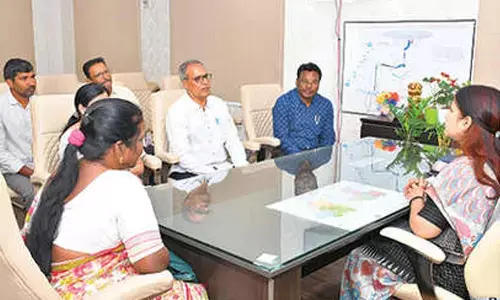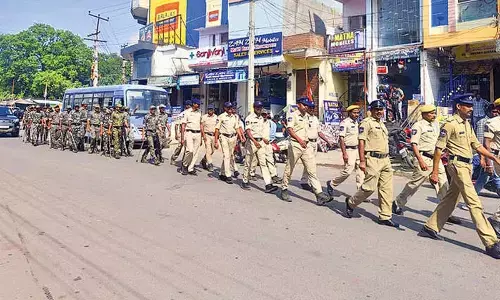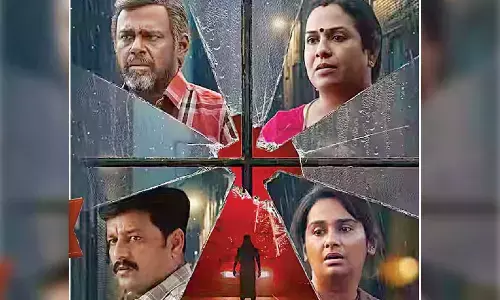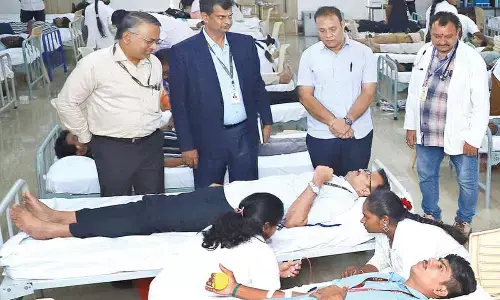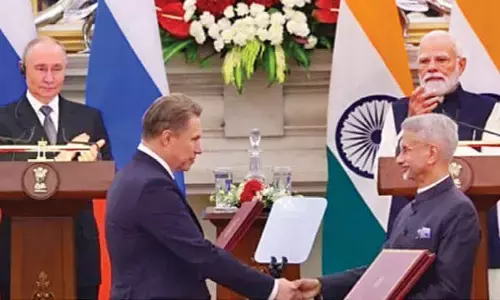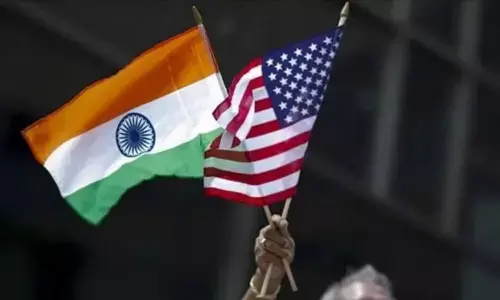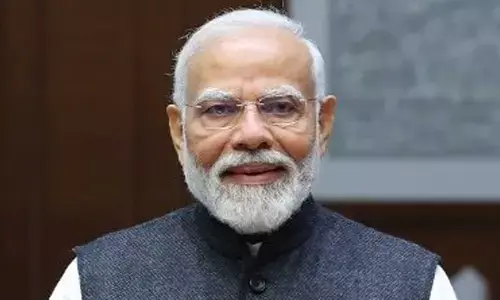How To Prove To Indian Citizenship: Are you son of projected parents?
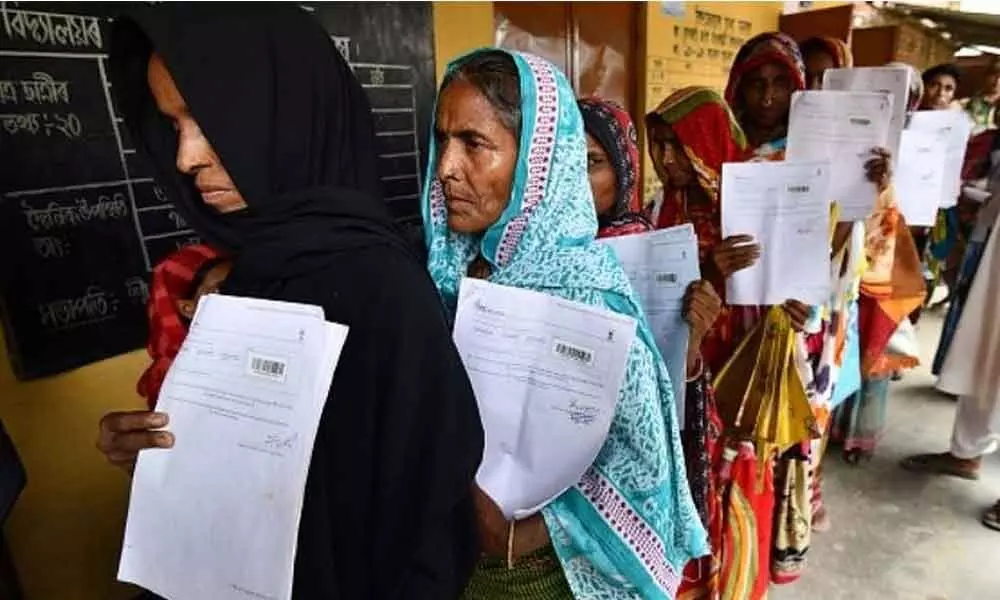
Around 19 lakh people in Assam will find it highly difficult to prove that they are citizens of India.
Around 19 lakh people in Assam will find it highly difficult to prove that they are citizens of India. There are 13 lakh Hindus facing task of establishing residence before 1971 and the parentage with Indian Citizen.
The crisis is staring at all Indians because each has burden to prove that he is Indian by proving that he is born to projected parents.
The Clause 5 of the Assam Accord deals with the foreigners and the foreigners have been classified under three heads for identification and differential treatment under the Assam Accord.
According to the Assam Accord, all persons who came to Assam prior to January 1, 1966, including those amongst them whose name appeared on the electoral rolls used in 1967 elections, shall be regularised.
On the other hand, the foreigners who came to Assam after January 1, 1966 (inclusive) and up to March 24, 1971 shall be detected in accordance with the provisions of the Foreigners Act, 1946 and the Foreigners (Tribunals) Order 1964 and would be disenfranchised for 10 years that they will to get voting rights only after expiry of 10 years from the date of their detection or declaration as foreigner.
Those came into Assam on or after March 25, 1971, shall continue to be detected, deleted and deported. Thus, a person in Assam must prove that – she/he is resident prior to 1971 and their parent was citizen of India.
Md. Babul Islam v. State of Assam, (WP(C) No. 3547/2016)
A notice was issued to the Babul Islam asking him to prove his Indian Citizenship.
Babul has produced four documents during proceedings before the Foreigner's Tribunal, an Electoral Photo Identity Card, a Registered Sale Deed of 1964, a Sale Deed of 1970, a Voter List of 1997 bearing his name.
But division Bench laid down the law that an Electoral Photo Identity Card holds no evidentiary value for the purposes of determining citizenship.
With regards the sale deeds, the Tribunal held that the same had not been proved in the manner as required by law. It said: "Sale Deeds are private documents, therefore, they must be proved in accordance with law.
In Narbada Devi Gupta Vs. Birendra Kumar Jaiswal (2003) 8 SSC 745, the Supreme Court has reiterated the legal position that marking of documents as exhibits and their proof are two different legal concepts.
Mere production and marking of a document as exhibits cannot be held to be due proof of its contents. Its execution has to be proved by admissible evidence i.e., by the evidence of those persons who can vouch safe for the truth of the facts in issue."
Jabeda Begum's case
Superintendent of Police has referred the case of Jabeda as D-voter and, the Foreigners Tribunal, Baksa, Tamulpur, Assam, issued notice to the petitioner asking her to prove her Indian citizenship.
The 50-year-old Jabeda Begum alias Jabeda Khatun, wife of Rejak Ali hailing from Guwahari village under Tamulpur police station in Baksa district had claimed that she was a citizen by birth. Foreigners' Tribunal declared her as foreigner, rejecting her claim.
In its opinion dated 31.05.2019, passed by the Foreigners' Tribunal, Baksa, Tamulpur, Assam, in F.T. Case No. 22/BAKSA/2018, declaring her to be a foreigner of post 1971 stream. She challenged this order in a writ petition (case no: WP(C) 7451/2019).
Jabeda claimed that (a) she was born at Bangalpara and her parents' names are late Jabed Ali and Jahura Khatun alias Jahera Kharan and due to river embankment erosion, her father had shifted from Bangalpara to no. 2 Dongoragaon and lived there all his life;
(b) the names of her parents appeared in the voter list of 1966 and even the names of her grandparents had appeared in the voter List of 1966 and also her father's name appeared in the voter lists of 1970 and 1997; the names of her parents and two brothers, namely Samsul Ali and Insal Ali, also appeared in the 2015 voter list; (c) she has three brothers, namely Insan Ali, Khairul Ali and Samsul Ali, and two younger sisters, namely Morjina Begum and Taravanu Begum and she was married to Md. Rejak Ali of the same village and thereafter, her name appeared in the voter lists of 2008; (d) in the year 1997 too, her name appeared in the voter list but it was marked as 'D' voter.
She produced as many as 15 documents including, NRC details, land revenue paying receipt, voter list, PAN card, bank documents, ration card before the court. Jabeda had also produced two certificates by Gaon Bura (village headman) - one certificate of Gaon Bura certifying that Md. Jabed Ali is a permanent resident of village no. 2 Dongergaon and another certificate of village Gaon Bura certifying that the petitioner being the daughter of late Jabed Ali was married to Rejak Ali.
The Gauhati HC held; "In the instant case, the petitioner claimed that she is the daughter of lt. Jabed Ali and Jahura Khatun alias Jahera Kharan. She could not file any documents to link herself with her projected parents…
This court in Babul Islam by the same judges, held that PAN Card and bank documents are not proof of citizenship. Md Samsul Ali, the projected brother of the petitioner, adduced evidence before the Tribunal. He claimed to be 33 years old and his name appeared in the voter list of 2015.
The petitioner could not file any documents to link herself with her projected brother, Md Samsul Ali. Land revenue paying receipts do not prove a citizenship of a person. Therefore, we find that the Tribunal has correctly appreciated the evidences placed before it and we could find any perversity in the decision of the Tribunal".
During updating process of the National Register of Citizens (NRC) in Assam, the Supreme Court has allowed married women to submit Gaon Bura (village headman) certificates as documents to establish their relationship to their parents for inclusion their names in the NRC through proper verification.
"Certificates issued by a village Gaon Bura can never be the proof of citizenship of a person. Such certificate can only be used by a married woman to prove that after her marriage, she had shifted to her matrimonial village (Rupjan Begum vs. Union of India, (2018) 1 SCC 579). The Gauhati HC Bench ignored this order totally. HC reiterated that the petitioner failed to prove her linkage with her projected parents and her projected brother.
Advocate Syed Burhanur Rahman said Jabeda was not able to link her relationship with her parent by submitting documents. He said: "Unfortunately the linkage documents were not correctly or properly given as per the order.
She gave the Gaon Bura certificates and the Gaon Bura appeared before the Foreigners' Tribunal and if that is appreciated in the correct manner then probably, she could still hope to proof her citizenship in the Supreme Court."
Jabeda's case is different from Babul's. She has produced the voter's card of 1966, which should convince the court about her stay in Assam prior to 1971. Two aspects need to be proved; one- residence in Assam prior to 25.3.1971, two- her/his birth relation with projected father.
Voter card is no proof of citizenship, but it can still show that the petitioner has resided in a place, at a particular period. In previous case the petitioner Babul Islam could not prove that he resided in Assam prior to 1997 by voter card. It was held he could not produce voter card before 1971.
Voter card is held to be no proof of citizenship, but how can anybody rule out authenticity of Electoral Identity card for the address and residence of the voter at a place and time? But how to prove parentage is the main issue. Here are two cases.
In Babul Islam case failure was about residence before 1971, and in Jabeda Begum, it was the problem of parentage. Babul could not prove by voter card that he lived before 1971. Jabeda produced 1966 voter card that proved her pre-1971 stay in Assam.
But court was not convinced that she was daughter of her projected parents. When Centre extends NRC to the entire India, every person must prove that he/she is born to a citizen, that is the parentage. How to prove it? What document is needed? The government did not come out with any guideline or rule.
(The writer is former Central Information Commissioner and Professor at Bennett University)








